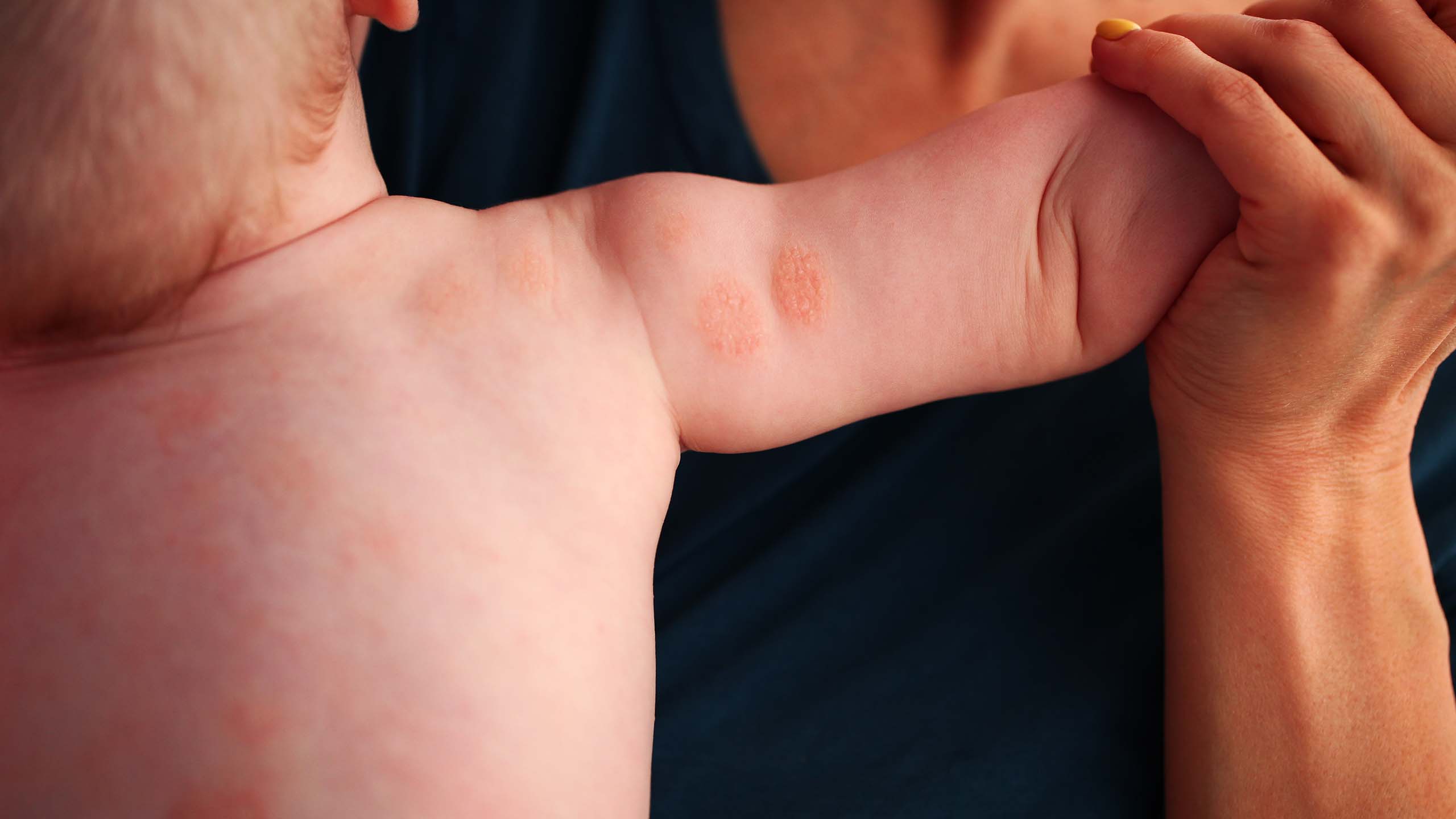Nummular eczema, also sometimes referred to as discoid eczema and nummular dermatitis, causes itchy, circular patches to appear on the skin. This type of eczema often looks like psoriasis, ringworm, or even other forms of eczema.
Unlike other forms of eczema, though, nummular eczema rarely goes away without a relatively aggressive treatment plan. That’s why it’s critical to know what nummular eczema is, what causes it, and how to treat it.
What Is Nummular Eczema?
Nummular eczema is a form of eczema that causes coin-shaped rashes on the skin. In fact, the word “nummular” comes from the Latin word for coin.
Nummular eczema symptoms include itchy circular rashes that may:
- Burn
- Ooze liquid, or may have crusted over
- Appear scaly
- Appear red, pinkish, or brown
Unlike most forms of eczema, nummular eczema is more common in men than women!
What Causes Nummular Eczema?
Researchers and medical professionals don’t know the exact cause of nummular eczema. However, many people who suffer from nummular eczema have a personal or family history of atopic dermatitis, allergies, or asthma.
While they’re not root causes, there are several triggers that may contribute to the development and flare-up of nummular eczema, including:
- Stress
- Dry skin
- Injury or surgery
- Over-cleansing
- Irritating ingredients in skincare and household products
How to Treat Nummular Eczema
According to Dr. Peter Lio, director of the Chicago Integrative Eczema Center, when treated properly, many people will experience significant improvement in nummular eczema within seven to 10 days.
Here’s how to treat nummular eczema:
1. Short Course of Topical Steroids
Topical steroids aren’t our preferred first line of defense against eczema. Topical steroids can disrupt your skin microbiome, which is made up of the trillions of beneficial microorganisms that help protect your body from foreign invaders. Topical steroids, if overused, can also lead to topical steroid withdrawal, which causes an uncomfortable rash (sometimes worse than the eczema) when you stop the use of steroids.
However, when used for a short time as directed by your primary care physician or dermatologist, steroids can be very helpful for stopping forms of eczema like nummular dermatitis that require more aggressive treatment.
So, if your dermatologist or primary care doctor recommends corticosteroids for your skin, you may consider giving them a try to help combat nummular eczema as quickly as possible.
2. Balance the Skin Microbiome
When the bacteria, fungi, and viruses living in your skin microbiome are in a balance, the beneficial microorganisms are able to defend your body from environmental threats.
However, when your skin microbiome, or skin flora, becomes unbalanced, skin conditions like eczema, acne, and rosacea can develop.
In fact, new research continues to affirm that the overgrowth of a bacteria called Staphylococcus aureus can cause flare-ups of eczema known as atopic dermatitis in eczema-prone people.
While most of the research done about Staph A. and eczema pertains to atopic dermatitis, some studies suggest an increase in this bad bacteria exists for many people suffering from nummular eczema as well.
That’s why rebalancing your skin’s microorganisms through microbiome-friendly lifestyle changes and microbiome-balancing creams like Gladskin Eczema Cream may help you reduce and fend off symptoms from nummular eczema flare-ups.
3. Moisturize
Because dry skin can contribute to the flare-up of nummular eczema, regularly moisturizing your skin can play an important role in experiencing glad, itch-free skin again.
Try to moisturize daily, especially after cleansing the skin. Look for preservative-free lotions or creams that contain ingredients like glycerin to help retain moisture and protect the skin’s natural barrier.
On the other hand, avoid moisturizers with chemical additives like sulfates, parabens, or other preservatives. These chemicals can disrupt your skin microbiome and worsen your eczema.
4. Avoid Skin Irritants
While irritants aren’t thought to cause nummular eczema, they can inflame the skin and may worsen your eczema. For that reason, do your best to avoid:
- Irritating clothing materials, such as wool
- Over-cleansing with harsh soaps and hot water
- Chronic emotional stress
- Harsh chemical ingredients in topical and household products
5. Manage the Itch
Scratching your itchy eczema rash can make it worse. In fact, scratching increases your risk of causing lesions in the skin that are susceptible to infection.
But if you have eczema, you know refusing to scratch is easier said than done.
Many people with eczema find that applying a cold compress effectively reduces their itchiness. To make a cool compress, run a washcloth under cold water until soaked through. Remove excess water, and apply the compress to your eczema patch. Feel free to repeat this process as needed throughout the day to prevent scratching.
If needed, your healthcare provider may also suggest antihistamines to help minimize scratching and reduce your eczema’s itchiness.

